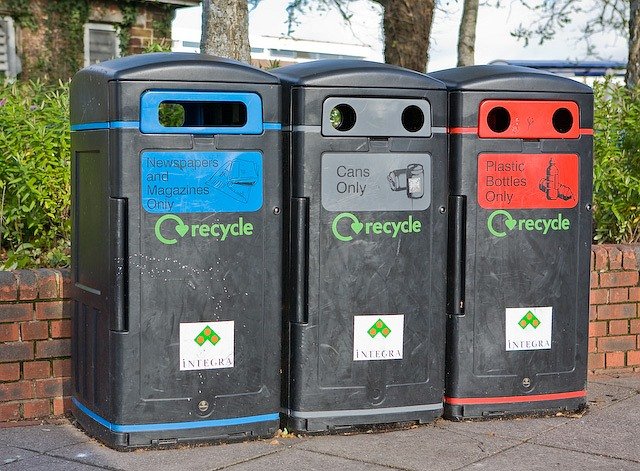
Why Recycling and Proper Disposal Are Important to Your Health
Recycling and correct waste disposal aren’t only environmentally friendly—they are an important part of keeping your health and your community healthy. When we recycle properly and use care with hazardous materials, we reduce pollution, conserve resources, and keep dangerous substances out of our homes, yards, and waterways. Local governments and health departments across the country, from Parker, Colorado, to DeKalb County, Illinois, are doing everything they can to bring recycling within reach of all and make it safer.

What You Can Recycle at Home
The majority of curbside recycling programs accept the fundamentals, but having a clear idea of what goes in the bin keeps the whole process going.

Paper and cardboard: Recycle clean, dry paper like newspapers, magazines, office paper, envelopes (plastic windows are okay), and paperback books. Flatten cardboard boxes and make sure they’re free of food residue. Pizza boxes can go in too, as long as they’re not greasy or soaked in cheese.

- Plastics: Empty, clean plastic bottles and containers are typically accepted. Leave the caps on, but do not include plastic bags, wraps, or large, bulky plastic pieces in your curbside container.
- Glass: Clean, empty glass jars and bottles are acceptable. Take off lids and recycle them separately. Don’t include window glass, mirrors, or ceramics in your recycling cart—special handling is necessary.
- Metals: Aluminum cans, foil, and tin cans are all recyclable. Simply rinse them to remove any food. Larger metal items and scrap metal must most likely be taken to a specific drop-off location.
- Cartons: Cleaned car cartons, milk, juice, and broth cartons can be recycled.
- A tip: always put loose recyclables in your bin—never bagged. Bags can jam sorting equipment in recycling facilities.

Things That Require Special Attention
Some everyday items can’t be put in your curbside recycling bin, but they don’t have to go to the landfill.

- Electronics: Used phones, computers, and televisions contain pieces that are hazardous if not recycled. Most counties have drop-off locations or offer special collection days for electronics recycling.
- Batteries: Automotive batteries, rechargeable batteries, and lithium batteries never go into the trash or recycling can. Most hardware stores and recycling facilities take them. Some communities have alkaline batteries as part of the trash collection, but recycling is best when available.
- Appliances: Fridges, air conditioners, and other appliances can contain dangerous materials such as freon. Professional centers or appliance retailers can recycle safely, although there is a small charge.
- Hazardous waste: Paints, solvents, pesticides, antifreeze, and some glues shouldn’t be disposed of in the regular trash. Some communities have household hazardous waste facilities that can accept these materials. Fluorescent bulbs, expired medication (on select days), and sensitive documents to shred are also accepted at some sites.

What Should Never Go in Your Recycling Bin
It’s easy to make mistakes when it comes to recycling, but it can lead to huge issues—it may taint clean recyclables, ruin equipment, and even pose safety risks.

- Plastic bags and film: Return them to store drop-off points rather than depositing them in your bin.
- Food waste: Compost it at home if you have the capability, or place it in the trash—never in the recycling.
- Used tissues, napkins, and paper towels: They should go in the trash.
- Ceramics and glassware: If they’re in working order, give them away; if not, throw them out.
- Household hazardous waste: Never dispose of chemicals, batteries, or electronics in the recycling or your household trash.
- Toys and big plastic items: Give away if still usable; if not, dispose of in a manner complying with local regulations.
- Medical waste: Needles and syringes must pass through special disposal programs—never in recycling or household trash.

Community Options and Drop-Off Points
Most communities provide opportunities to recycle difficult items or dispose of hazardous waste safely than ever before:

- Electronics: Local facilities like Techno Rescue in Aurora, Colorado, or Hillsborough County’s Community Collection Centers take electronics year-round.
- Metal and appliances: Recycling centers like Metal Man Recycling in Castle Rock or Zimmerman Recycling in DeKalb take scrap metal and used appliances, with some even providing pick-up.
- Household hazardous waste: Facilities such as the Household Material Recovery Facility (H-MRF) in Westchester County or Naperville’s facility in Illinois collect a variety of hazardous materials, usually by appointment.
- Textiles: Many countries now collect clothing, shoes, and accessories in whatever condition as long as they’re clean and dry.
- Medication drop-offs: Sheriff’s offices and community drop-boxes in many areas take expired or unwanted medications for disposal.
Always call your local waste or health department for the most current information about what’s acceptable and where to take it.

Easy Habits for a Healthier, Greener Home
- Rinse out containers before sending them into recycling to prevent contamination.
- Flatten boxes and keep recyclables dry.
- Save hazardous materials and transport them to the correct facility.
- Give away used clothing, books, and household items rather than discarding them.
- Learn your community’s local recycling guidelines—they might be different from town to town.
- Keep hazardous items safely stored until you can take them to the drop-off.

By incorporating these habits into your daily life, you’re not only keeping your own home in order—you’re contributing to safeguarding your health, your neighbors, and the community we all share.
